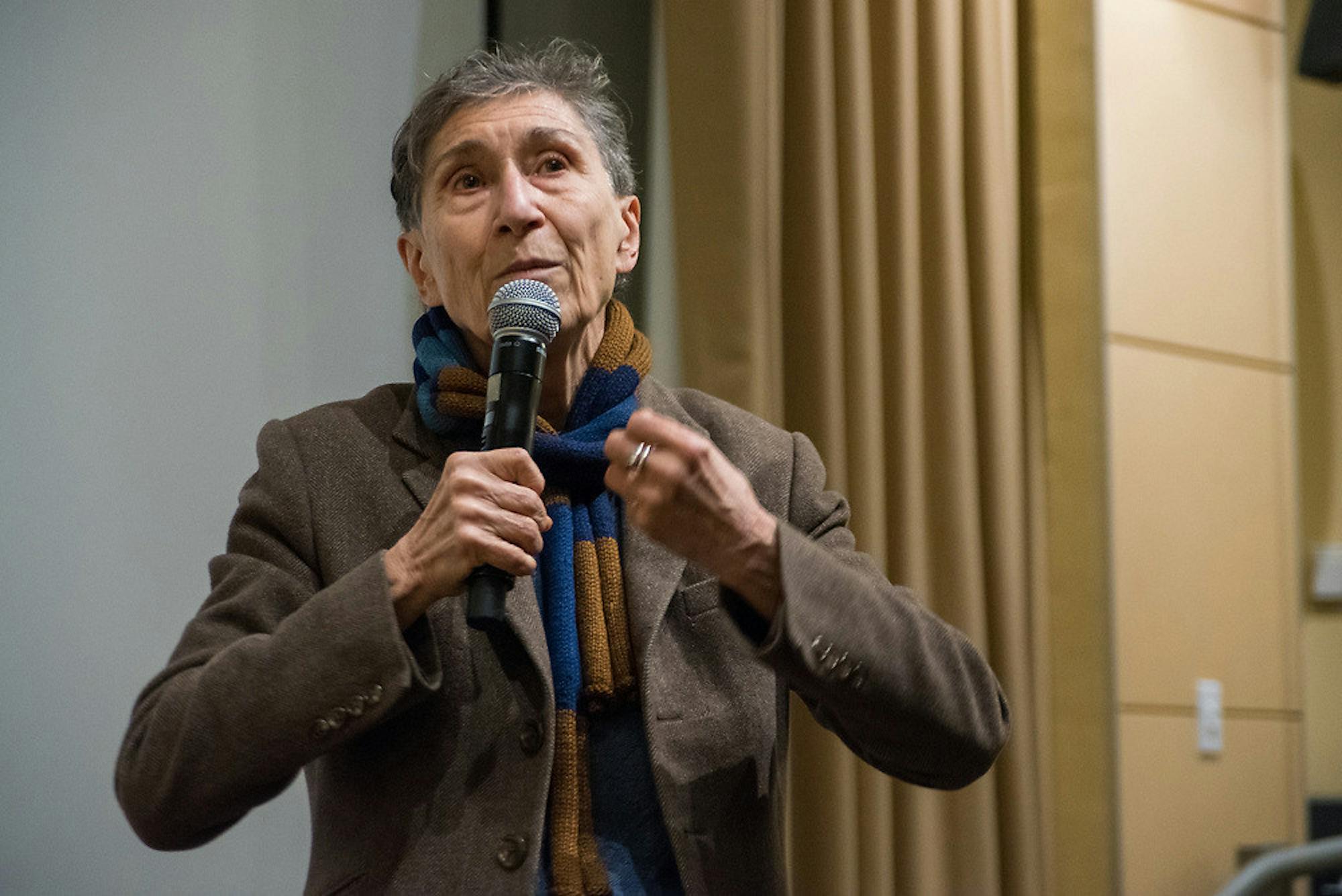Silvia Federici, a scholar, activist and professor emerita at Hofstra University, gave a talk in ASEAN Auditorium covering topics featured in her book, "Re-enchanting the World: Feminism and Politics of the Commons" (2018). The event was sponsored by several departments, including the Department of Anthropology, the Environmental Studies Program and the Consortium of Studies in Race, Colonialism, and Diaspora.
According to Alex Blanchette, an assistant professor in the anthropology department,Federici was raised in Italy and received her Ph.D. from the University of Buffalo. He added that she was a co-founder of the International Feminist Collective and worked as an organizer the Wages for Housework movement.
The talk opened with remarks by Blanchette, who spoke about Federici's other works and biography.
"Silvia Federici [is] one of those generative and still direly needed feminist and ecosocialist thinkers of our time," he said, adding that she is the author of books such as 'Caliban and the Witch' (2004) and 'Wages Against Housework' (1975)."
Federici opened the talk on a hopeful note, saying her goal was to try to build a new society.
"I hope that I'm going to show that despite the immense troubles and negativities that are face us, there's also proportionally an immense amount of struggle ... but also a sparkle to build something new, to lay the foundation for a new society," she said.
She then moved on to explain the concept of re-enchantment as used in her book, which grew out of Max Weber's concept of disenchantment caused by capitalism.
"What Weber meant by [disenchantment] is that capitalism has brought to the world a particular type of rationality, a particular type of logic where everything is valued and calculated according to its utility," Federici explained.
She expanded on this concept, asserting that capitalism leads to a violent process of displacement, dispossession and destruction of communal relations.
Throughout the talk, Federici argued for the rule and societal structure of the "commons" which she defined as a community doing collective labor and sharing the land where they live.
Federici emphasized that, although this mode of living is no longer the prevailing one, there are hundreds of thousands, if not millions, of people still practicing communal living. She cited indigenous Mexican and Guatemalan communities as examples.
"The shared use of the land right ... and this trouble that indigenous people and people still living in communal areas have made through made many aware of the importance, of the significance of community relations," she said. "The existence of this commons, by their very existence, in a way, show us that an alternative is possible that is not capitalism."
Federici then went over the history of the capitalism, starting with the commodification of land before moving into the industrial revolution.
According to Federici, a renewed global interest in the commons has built up since the 1990s with the collapse of communism. She said this interest was the result of the expansion of globalization and capitalism that the world experienced at this time.
Federici connected these contexts to feminism partway through her talk, saying that reproductive labor is traditionally regarded as one of the first exploited forms of labor. She then moved on to say that women could play a large role in the production and reproduction of the commons.
"I realized more and more, both through contact with the people in communal relations or women involved in struggles to build commons or discussion with the women in various social movements have a very important role that women have invented," she said, citing an example from India where women tried to fight to preserve common land.
Federici closed on a hopeful note, citing that women have been crucial in modern movements such as the protests at Standing Rock that began in 2016. The event was followed by a question and answer session.
Emet Ezell, a Boston resident who was interested in another one of Federici's books, said they were glad the event happened.
"I'm really grateful that someone is talking about enchantment, because everywhere I look I see death and destruction and grief and aching," they said. "This talk helps me understand what's at stake right now and the importance of connecting to each other and to land."
They added that they hope that Tufts learns to help to create communities from this talk.
Jesse Ryan, a sophomore, also attended the event and echoed the statement made by Ezell.
"I think the idea of the commons is so interesting and exciting and hopeful for me because I love to think about different imaginaries of what the world can look like and what communities can look like," Ryan said.
Ryan agreed with Federici, saying the system of gender means "the brunt of the labor of creating the commons and producing the commons has fallen on women."
Ryan also said the event was relevant to the larger Tufts community, connecting Federici's work with the Tufts Dining workers contract negotiations and control over people's bodies.
"I think having her come here ... and talk about ways that we can build worlds and communities that exist beyond that violence feels really relevant."
Silvia Federici gives talk on feminism, anti-capitalism

Scholar and activist Silvia Federici discusses her work in front of an audience in the ASEAN Auditorium on Feb. 12.





